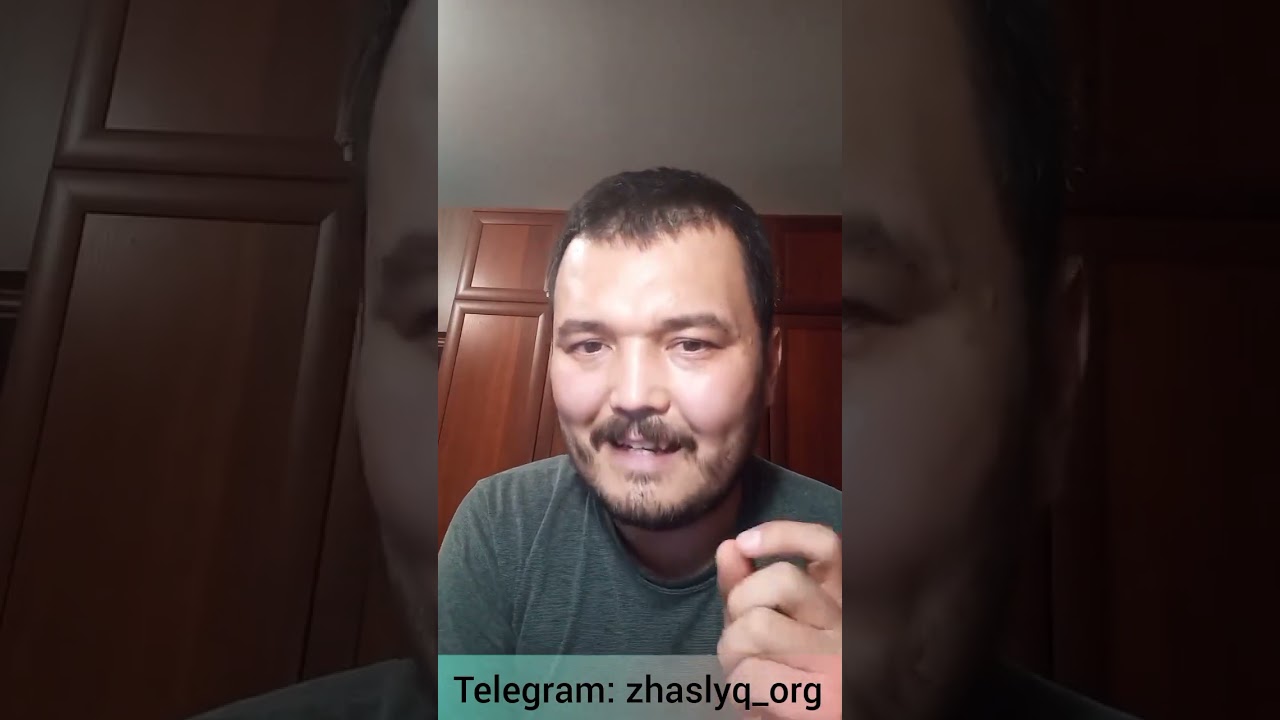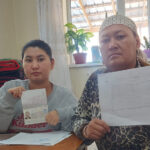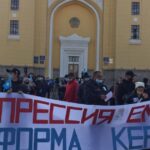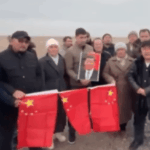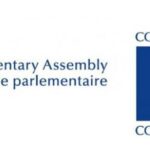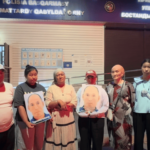Another Karakalpak activist has been arrested in Kazakhstan, on unfounded charges, further unveils a pattern of human rights violations and calls for international concern.
This time, Karakalpak human rights defender Akylbek Muratov, having Uzbek citizenship, was apprehended in Almaty on February 15, 2024, following a pending extradition request from Uzbek law enforcement authorities. Just two days later, on February 17, a trial took place at the Almaty detention centre, where he faced charges of inciting mass disorder and violence, as per Article 244 Part 2, and displaying materials posing a threat to public security, under Article 244-1 Part 3 of the Criminal Code of Uzbekistan. The trial proceeded without legal representation and resulted in a 40-day extradition arrest. These charges are brought regarding his involvement in memorial action in honour of 500 days since the events that took place in Nukus in July 2022 and the publication of videos of another Karakalpak dissident speaking at an OSCE conference.
The case drew international attention prompting a UN special rapporteur to call for his release and to a fair trial. Moreover, Human Right’s Watch (HRW) extended coverage to the incident, calling on Kazakh authorities to ‘reject these unfounded allegations and immediately release the activist’. The case has spurred HRW and various media outlets to delve into the historical context of injustices and threats faced by the Karakalpak community.
On the 23rd of February, Muratov was issued a certificate by the Almaty Department for the Coordination of Employment and Social Programs, granting him ‘asylum seeker’ status. The certificate is valid until the 23rd of May but can potentially be extended for another three months. Based on this document and in compliance with international law, Kazakh authorities are prohibited from extraditing him to any location where his safety or liberty may be jeopardized. While Kazakhstan seldom grants asylum to nationals of its neighbouring countries, an alternative safeguard consists of sending him to a third country as elaborated by Evgeny Zhovtis, director of the Kazakhstan International Bureau for Human Rights (KIBHR). Notably, prior to this incident, there have been five cases where Karakalpak individuals were detained by Kazakh authorities for a year, but none have faced extradition.
Karakalpakstan, an autonomous region located in north-western Uzbekistan, was the location of mass protests turned violent in June 2022. The unrest began in Nukus, the capital of the region, following the proposed amendments to the constitution by Uzbek President Mirziyoyev, removing its sovereign status and the right of Karakalpak’s to secede from Uzbekistan. Uzbek authorities continue to persecute Karakalpak activists within and outside the country, exposing them at dangers of human rights violations including potential forged trials and torture. Now reliant on international, democratic agencies such as the UN and embassies, the KIBHR continues to follow Muratov’s case and to hopefully resolve the issue in a third country.


